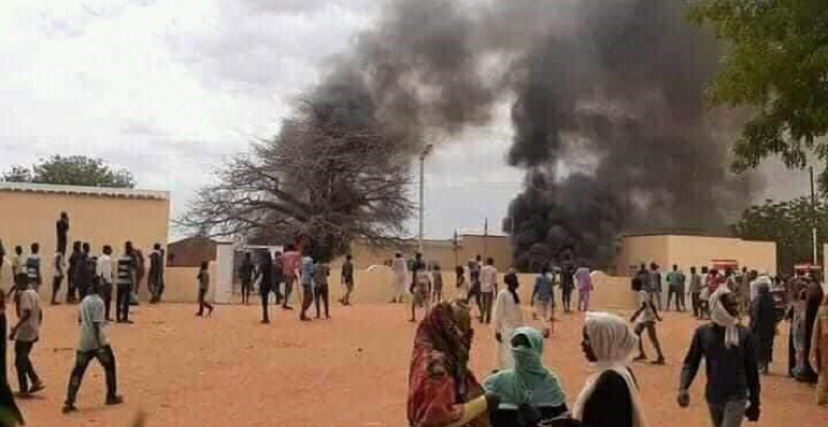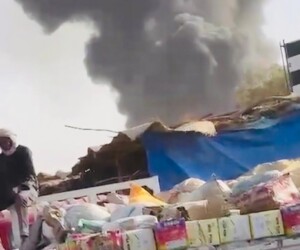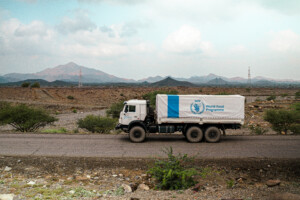More deadly RSF attacks in West Kordofan

One person was killed, police buildings were burned, and weapons stores were plundered in an attack carried out by an RSF unit on El Odeya, West Kordofan ,on Wednesday morning (Photo: Ultra Sudan)
At least one civilian was killed on Wednesday morning when a Rapid Support Forces (RSF) unit attacked El Odeya in West Kordofan. In El Muglad, security remains stable despite service deficiencies. South Kordofan’s El Tadamon recently received 265 displaced families who urgently require humanitarian aid, according to the locality’s Community Emergency Committee.
Sources report that the RSF deployed 19 Land Cruisers and motorcycles, launching an attack on El Odeya, West Kordofan, around 5:00 on Wednesday. A listener in El Odeya told Radio Dabanga that the attackers “burned the police station, destroyed crucial records, looted the weapons storage, and freed detainees”.
The Sudanese Armed Forces (SAF) garrison in El Odeya reportedly repelled the attackers, damaging five RSF vehicles in the process, locals said. A civilian reportedly died from a stray gunshot, and there were undisclosed casualties among the fighters.
According to the sources, additional military reinforcements arrived swiftly from El Fula, the capital of West Kordofan, and Babanusa.
In West Kordofan’s El Mujlad, security remains stable due to the concerted efforts of the Native Administration*. Speaking to Radio Dabanga, retired police Col Adam Ismail said that the Native Administration’s collaboration with official authorities “successfully thwarted plans to sabotage El Mujlad and plunder the local market”.
Ismail raised concerns over the deteriorating state of public services in Mujlad, particularly healthcare facilities, given that residents must cover their own treatment costs. “People returning from Khartoum to the region have received minimal assistance from local authorities”, he added.
In South Kordofan’s El Tadamon, 265 families sought refuge in El Tartar from war-affected areas. The Community Emergency Committee in El Tadamon stated yesterday that the new arrivals urgently need humanitarian assistance and basic necessities. “Discussions are ongoing with local authorities to secure land for housing the displaced families” according to the committee statement.
* The Native Administration was instituted by British colonial authorities seeking a pragmatic system of governance that allowed for effective control with limited oversight by the state. The state-appointed tribal leaders were also responsible for executing policies, collecting taxes, and mobilising labour on behalf of the central government. According to the Darfur Bar Association (DBA), the Native Administration during the 30-year rule of dictator Omar Al Bashir did not represent the real community leaders.











 and then
and then